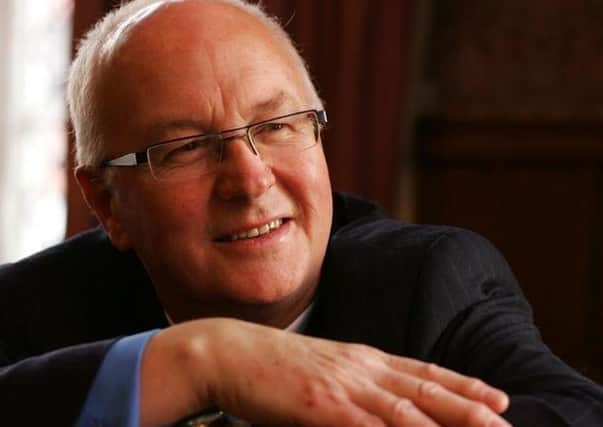Be prepared to chance your arm


‘He’s a chancer! So said a colleague as we digested news last week about a prominent British politician.
Sadly, there are no prizes for guessing the politician’s identity!
Advertisement
Hide AdAdvertisement
Hide AdTo describe someone as a ‘chancer’ suggests that he is unreliable, a bluffer perhaps, and certainly someone who expects favourable results even though he has not worked to deserve them.
The word comes from a common Irish phrase about ‘chancing your arm’, which originally referred to something more laudable.
The phrase comes from as far back as 1492, and springs from an ancient quarrel between two powerful families, the Butlers of Munster, known as the Earls of Ormond, and the Fitzgeralds, Earls of Kildare. Long at loggerheads, a meeting was arranged in Dublin’s St. Patrick’s Cathedral in the hope of brokering a peace.
Fearing for his life, the Ormond representative, Sir James of Ormond, fled into the chapter house and bolted the door. Tempers eventually cooled, and a tentative reconciliation was arranged.
Advertisement
Hide AdAdvertisement
Hide AdA hole was cut in the chapter door, and Sir James put his hand through the hole to shake hands with Garret Mor Fitzgerald. There was a huge element of risk, for this hand could have been shattered by a hammer, or severed by a machete.
But Sir James ‘chanced his arm’ and the result was a long overdue reconciliation. It was an act of considerable courage and faith. Sir James found that his gesture was not despised.
That incident provides an insight into religious faith. Faith is prepared to take risks. The great heroes of the faith in the Bible were people who heard the call of God, and when they heeded that call, found that they were not disappointed or mistaken.
We read that ‘Abraham obeyed and went, even though he did not know where he was going’ (Hebrews 11:8). As a result, Abraham became known as ‘God’s friend’(James 2;23).
Advertisement
Hide AdAdvertisement
Hide AdThe seventeenth century philosopher Blaise Pascal is well-known for what is known as Pascal’s wager.
He argued that it is best to go through life believing in God, because if God does not exist, the only loss is of temporal pleasures.
On the other hand, to live as though God does not exist risks eternal loss if at the end of life we face the judgement of a God who was there all the time. All that, however, seems too cold and calculating.
Faith in God is an adventure, and the response, not of cold calculation, but of a loving heart.
Advertisement
Hide AdAdvertisement
Hide AdOne man described it as ‘Betting one’s life there is a God’. And those who exercise faith discover that God is there to receive and welcome them, and vindicate their faith.
As Paul put it ‘Anyone who trusts in him will never be put to shame’ (Romans 10;11).
There is just one thing to add, and that is a line from a gospel hymn: ‘Put your hand in the hand of the man from Galilee’.